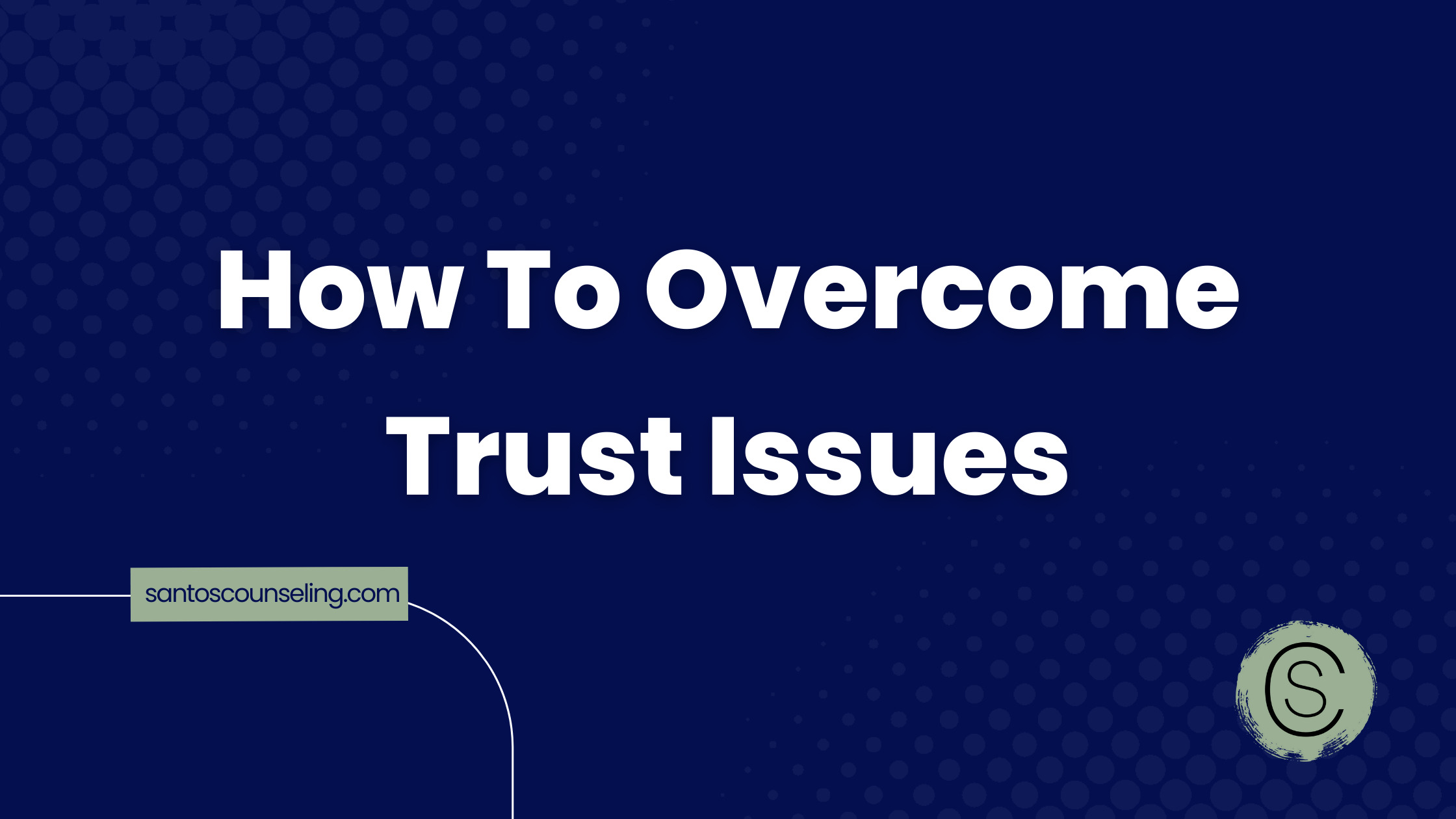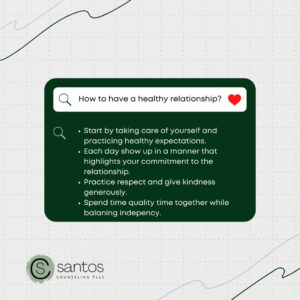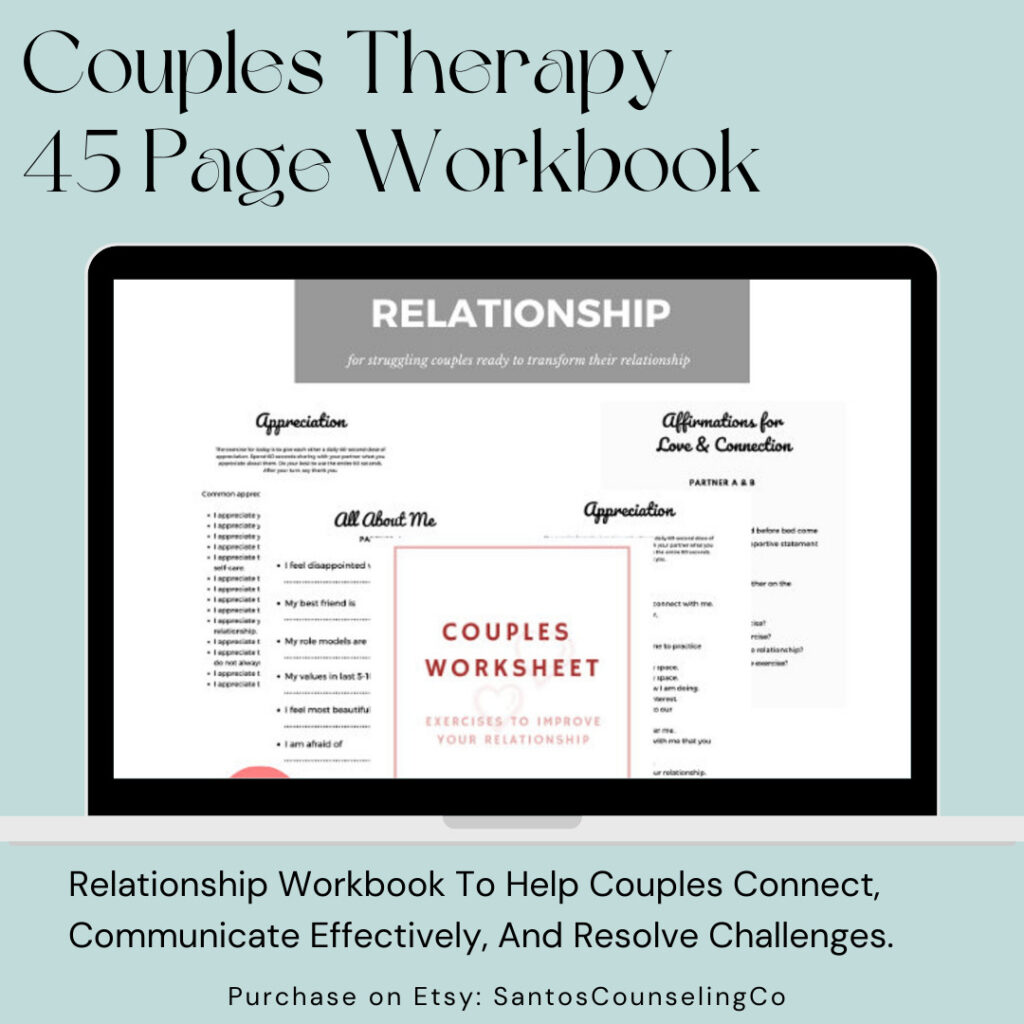How To Overcome Trust Issues
Let’s start this on the right track.
Overcoming trust issues is not easy nor is it a quick action to complete. It is a process that takes time, has highs and lows, and requires actions aimed to foster a space of trust.
Today, give yourself space to consider your rating of trust in the relationship. From 0 to 10, 10 being the highest. What rating number would you give your relationship when it comes to trust?
Write down your number.
Now, think about why. What took place to cause trust in your relationship to go from a high to a lower number?
How To Trust Someone Again
If your goal is to trust your partner again, please know that this is a process strongly connected to you.
Your partner can do a million actions that show trust. That demonstrates safety and security. Yet, none can shift your viewpoint.
You alone hold the key to receiving the actions your partner is doing and making an internal agreement to trust once more. To lower your walls. To remove resentment. To once again let them in.
I want you to think about trust as an empty container. To fill the container, the couple must engage in specific practices that develop and sustain trust. Please be mindful that filling the container is consistent action. It is not a one-and-done process. For a supportive podcast episode on trust, click here.
Take a moment and reflect on the early stages of your relationship. Go back to when things were great. When you felt connected with your partner.
Now that you are thinking about that time in the relationship, write down what was happening that made you feel that way. Below are questions to explore:
- What is my definition of trust?
- What words make me feel secure?
- What actions make me feel secure?
Complete The Form To Start Counseling
How To Earn Trust Back
Earning trust back is very similar to training for a marathon. Typically, not a process that you do in one week. It’s also not a process that you can train one day for and expect to place in the top 10.
Accepting the following can truly help with creating growth in earning trust back:
- Set realistic expectations.
- Give the processing time.
- Do not rusk the process or your partner.
- Validate your feelings.
- Validate your partner’s feelings.
- Be mindful that setbacks are part of the process.
To earn trust back in your relationship, it is vital that you focus on what you are doing that demonstrates the earning component. Demonstrating that you want to earn trust back includes actions. Daily actions are verbal and non-verbal that you are engaging in. Please be mindful that this is a process you do for yourself versus making a “change to earn trust from your partner”.
The key is to earn trust because you are a person of character, integrity, and discipline. When you are able to work on yourself, the change process in life becomes just a bit easier. In addition, your partner will see that you are earning trust because you are a person that holds importance in trust.
11 Practices That Help With Overcoming Trust Issues
1. Thoughts are extremely powerful in life and in relationships.
If I have the thought, “my wife never listens to me.” This very thought can incline the behavior of being distant and having low expectations. The goal is to construct kind and positive thoughts. This way, the thoughts can work to foster healthy and constructive interactions.
2. Learn to love who your partner is.
I want you to stop here for a moment and think about the statement, “learn to love your partner for who they are.”
- Are you doing that?
- Are you loving your partner for who they are?
Imagine what it feels like to be loved and accepted for who you are. I want you to think about that. Close your eyes and visualize yourself as the person that is receiving the love.
I assume that you would truly enjoy this form of love and acceptance.
Try to practice this daily.
3. Have days with more positives than negatives.
If possible, give yourself a goal at the start of the day. The goal is to generously give your partner more positives than negatives with a ratio of 5 to 1.
5 positives to 1 negative.
The positives can be actions or words. Such as, sharing words of gratitude or doing an act of kindness.
4. Be patient with your partner.
With goals and with how you communicate with each other. I think on average, people desire that others are patient with them. When you are given patience, you will notice that tension reduces, and acceptance increases. In your relationship, try to be mindful of this area.
5. Don’t stop your partner from living their life.
This means that you are mindful of when you are attempting to place limitations in your partner’s life. Limitations that in reality, are meant to help you feel better and less insecure. An example of this includes when one partner tells the other partner that they cannot have friends of the opposite sex. The request may be far more connected to insecurities than to trust.
6. Try to be on the same page.
This is a general area that is vital to have in your relationship. Try to consider how you and your partner can align in partnership and life. For instance, you can align with your life goals as well as your career ambitions.
7. Accept your partner for who they are.
This means that you are able to see them for who they are. For some, this is acknowledging that your partner will make mistakes, that they may not be a handyman, or that they may not be the best planner. The moment that you are able to accept your partner is the moment that you free yourself from holding onto the picture-perfect partner. This gives you the freedom to love the person in front of you. This also gives your partner freedom to show up as their authentic self.
8. Do not read your partner’s mind.
A common habit that is found to hurt relationships is making assumptions about your partner’s words and behaviors. This simply means that you jump to conclusions and make assumptions about how your partner is feeling.
9. Be a good person because you want to be a good person.
Successful couples have partners that actively work on becoming their best version. I often notice that struggling couples spend too much time focused on changing their partner. This is seen when one partner shares, “if you didn’t roll your eyes, then I wouldn’t have yelled.” This statement can show you that one person is pushing the other to change. Versus taking on the act of accountability and personal improvement. Yes, this does connect to the blame mentality. It also sheds light in comprehending that if one person places responsibility for their actions onto another, they in essence are making an agreement. The agreement to be at the mercy of the other person.
10. Be mindful of how you bring up the past in your relationship.
I often notice that couples in conflict will practice the habit of bringing up the past in a manner that hinders or negatively impacts the relationship. My encouragement is that you consider the questions.
- What is the purpose of bringing up the past?
- Is bringing up the past helping or hindering the relationship?
11. Successful couples actively maintain a spark in the relationship.
Please be mindful that the spark in a relationship is bound to have seasons that are heavier as well as those that are lighter. Accepting this as reality can support your journey in the relationship. It provides you with a genuine reality and healthy expectations. Below are ways to maintain your relationship spark:
- Date consistently.
- Seek each other.
- Be playful.
- Try new experiences together.
- Use all of the love languages.
Can You Love Someone And Not Trust Them
Yes, you can love someone and not trust them. This can be seen as setting a boundary.
I’ll share an example with you.
Let’s say that you had a past partner. You shared 6 years together and ended the relationship due to ongoing betrayal and hurtful actions. After the relationship, you find yourself holding thoughts of love connected to your ex-partner. Yet, you decide to not continue any kind of relationship with them due to not trusting them in your life. This is called a boundary.
The definition of a boundary is in essence, you are allowing into your life what serves and supports you while closing the door to what hurts you.
In the example above, the action of continuing to give thoughts of love to your ex-partner serves you because giving love connects to your values. This is very healthy. Versus, holding on to anger, resentment, or negative thoughts and feelings.
The action of not engaging in any kind of relationship with your ex-partner is the part of the boundary that shows you are aware of what not to allow into your life. So you create healthy distance.
Some people call this, loving from a distance.






